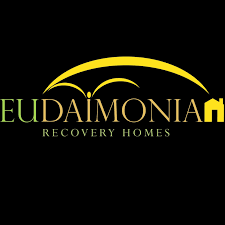Houston, Texas, United States
Eudaimonia Recovery Homes Houston
Claimed
Claimed
Recovery.com has connected directly with this treatment provider to validate the information in their profile.
Joint Commission Accredited
The Joint Commission accreditation is a voluntary, objective process that evaluates and accredits healthcare organizations (like treatment centers) based on performance standards designed to improve quality and safety for patients. To be accredited means the treatment center has been found to meet the Commission's standards for quality and safety in patient care.
Provider's Policy
Insurance is accepted for the intensive outpatient program. Eudaimonia Recovery Homes works with a number of private insurance providers in the United States.
Estimated Cash Pay Rate
The cost listed here ($650 - $1000) is an estimate of the cash pay price. Center pricing can vary based on program and length of stay. Contact the center for more information. Recovery.com strives for price transparency so you can make an informed decision.
About Eudaimonia Recovery Homes Houston
Eudaimonia Recovery Homes in Houston offers affordable, structured sober living for men where they can receive support as they are integrating back into the community. They have two different locations in Houston that are easily accessible by bus so residents who do not have vehicles can access local businesses and attractions. The sober living facilities have a house manager that lives on-site and monthly rent includes amenities, support services, and utilities. All individuals entering the program must maintain sobriety for at least 30 days before moving into the facility. In addition, all participants are required to receive regular drug and alcohol testing at least twice a week, attend a set number of 12-Step meetings, and participate in Eudaimonia’s three phase program. Each phase has different objectives and as individuals achieve one objective, they will receive a new responsibility or reward. The program requires residents to attend three weekly meetings and residents under the age of 25 are required to attend an additional weekly meeting, such as College Students in Recovery (CSR). Eudaimonia also offers an intensive outpatient program with group meetings three times a week for an additional cost.
Peer Recovery Support Specialist Program (PRSS)
Eudaimonia partners with Measure Act Prevent (MAP) to provide personalized peer support with recovery support specialists. Individuals can receive PRSS services when they admit to the sober living program. It is offered for 90 days but can be utilized for a year or longer. The program consists of an initial profile for treatment, weekly and bi-weekly support sessions, 24/7 access to live recovery support services, and family sessions 2 times per month with MAP.
Read More
Insurance Accepted
Provider's Policy:Insurance is accepted for the intensive outpatient program. Eudaimonia Recovery Homes works with a number of private insurance providers in the United States.

Center Overview
Estimated Cash Pay Rate

Treatment Focus
This center primarily treats substance use disorders, helping you stabilize, create relapse-prevention plans, and connect to compassionate support.

Care Options






Treatment
Specializations
Approaches
Twelve Step
Incorporating spirituality, community, and responsibility, 12-Step philosophies prioritize the guidance of a Higher Power and a continuation of 12-Step practices.
Therapies
Twelve Step Facilitation
12-Step groups offer a framework for addiction recovery. Members commit to a higher power, recognize their issues, and support each other in the healing process.
Substances We Treat
Alcohol
Using alcohol as a coping mechanism, or drinking excessively throughout the week, signals an alcohol use disorder.
Drug Addiction
Drug addiction is the excessive and repetitive use of substances, despite harmful consequences to a person's life, health, and relationships.
Aftercare
Experience
Personal Amenities
Amenities
Special Considerations
Flexible technology policies
Centers with flexible technology policies allow professionals to stay in touch with work and give patients a greater sense of connection and normalcy.
We love hearing about your treatment experience
Help individuals and families seeking treatment by sharing your first-hand experience with this treatment provider. Review Guidelines.































